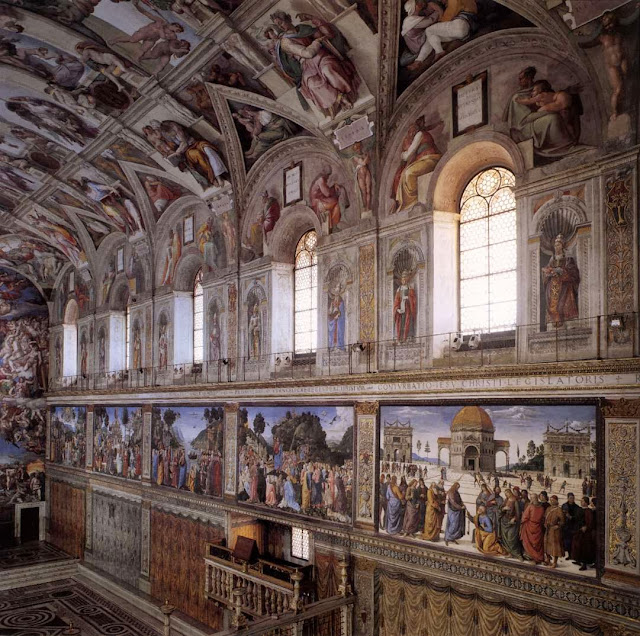Sviatoslav Richter
plays
Rachmaninov Concerto No. 2
Russian composer Sergei Rachmaninov’s four piano concertos are
about as big as they come – epic themes, sweeping Russian melodies and a
pianistic virtuosity equal to the composer’s own skill at the piano. That said,
his Piano Concerto No.2 is often described as the greatest piano concerto ever
written.
Rachmaninov
composed this work in 1900, and played the first complete performance on
November 9, 1901, with Alexandre Siloti conducting the Moscow Philharmonic
Society.
He suffered a shattering career crisis in the 1897 massacre of
his First Symphony in St. Petersburg, by its first conductor, Glazunov, who
was reportedly disablingly drunk -- a fiasco the critics en masse, led by César Cui,
laid at the composer's feet like an animal carcass. The audience -- ever
mindful that Rachmaninov
had been expelled in 1885 from the local temple of musical instruction --
listened stonily, glad for the failure of a young lion schooled elsewhere (in
Moscow, he completed the Conservatory course in 1891, and graduated a year later
with highest possible grades). Because of the failure of the Symphony No. 1, Rachmaninov
began to drink immoderately. Believing himself unfit to compose, he tried
concentrating on parallel courses as a concert soloist and opera conductor, but
embroiled himself in a love affair that ended very badly. By the end of 1899,
he was an alcoholic whose hands shook, imperiling his keyboard career.
Between
January and April 1900, Sergey
Vassilyevich saw Dr. Dahl, a Moscow specialist in
"neuropsychotherapy," daily, and was urged under hypnosis to compose
the new piano concerto that a London impresario was asking for. Trance therapy
roused the composer from his lethargy; indeed, he worked with great facility on
an excellent new concerto -- the Second, in C minor, Op. 18 -- dedicated to Dr.
Dahl in gratitude. Never again in the remaining four decades of his life was Rachmaninov
immobilized by depression, despite several convulsive changes of fortune.
Luckily, the composition of his Piano Concerto No. 2 marked his
full recovery, and it's a good job he took his time over it: every memorable
phrase, swelling cello line, and weighty piano chord is beautifully placed to create
a musical masterpiece. Glorious melody after glorious melody flows from
the keyboard; the dialogue between orchestra and soloist is divine; and
Rachmaninov undoubtedly had a hit on his hands.
The music is both virtuosic and lyrical all at once, with the
piano and orchestra taking it in turns to caress the heavy Russian melody. With
the bell-like chords in the opening movement, the serenity of the arpeggios in
the second, and the confident drive of the third, it's easy to presume this
piece was the work of a an assured, confident composer, whereas the truth
was very different.
If, when listening to the sublime second movement, you think
you might have heard the tune somewhere else before, take a listen to the power
ballad 'All By Myself'. The song was based on Rachmaninov’s melody.
Piano
Concerto No.2 in C minor, Op.18
00:00 - Moderato
11:21 - Adagio
sostenuto
23:05 - Allegro
scherzando
Leningrad Philharmonic Orchestra
Kurt Sanderling
1959

